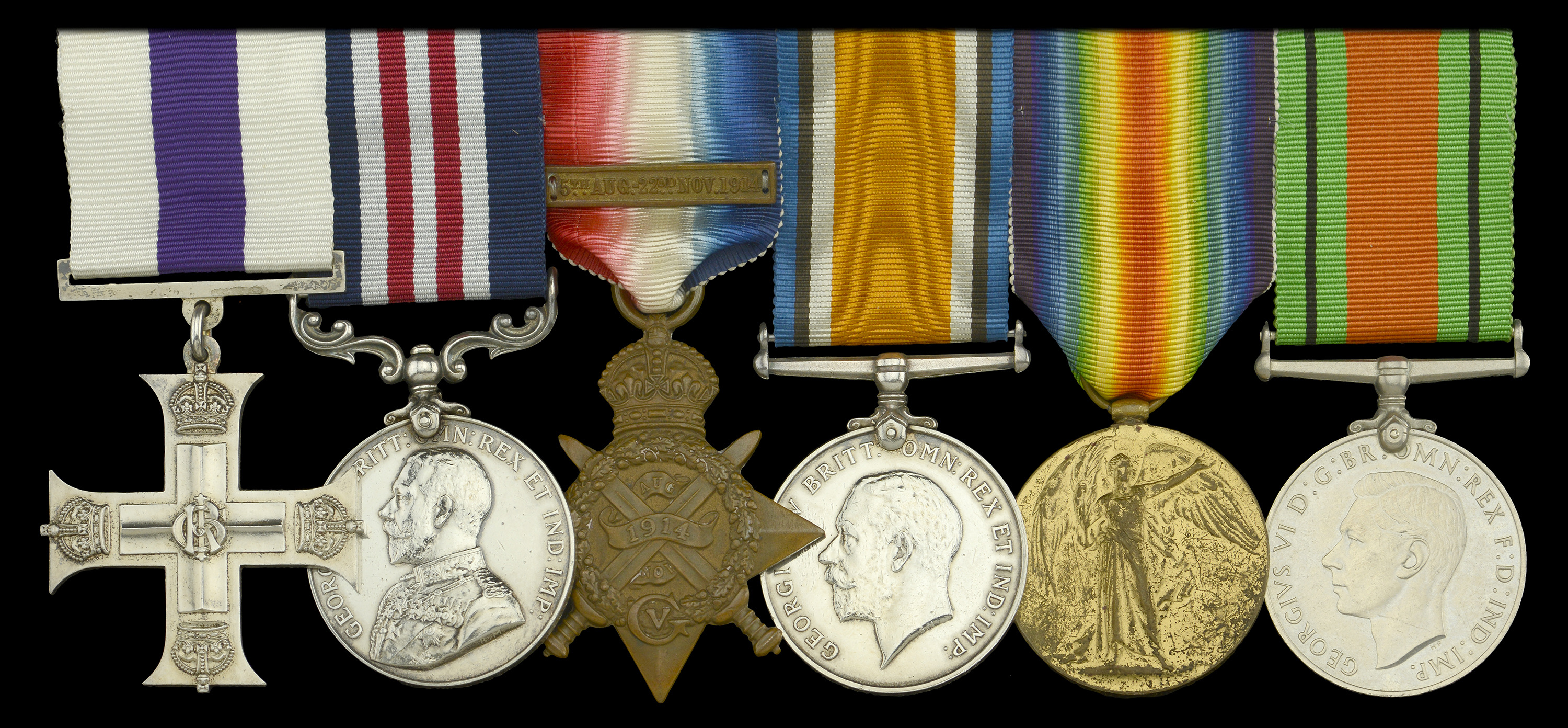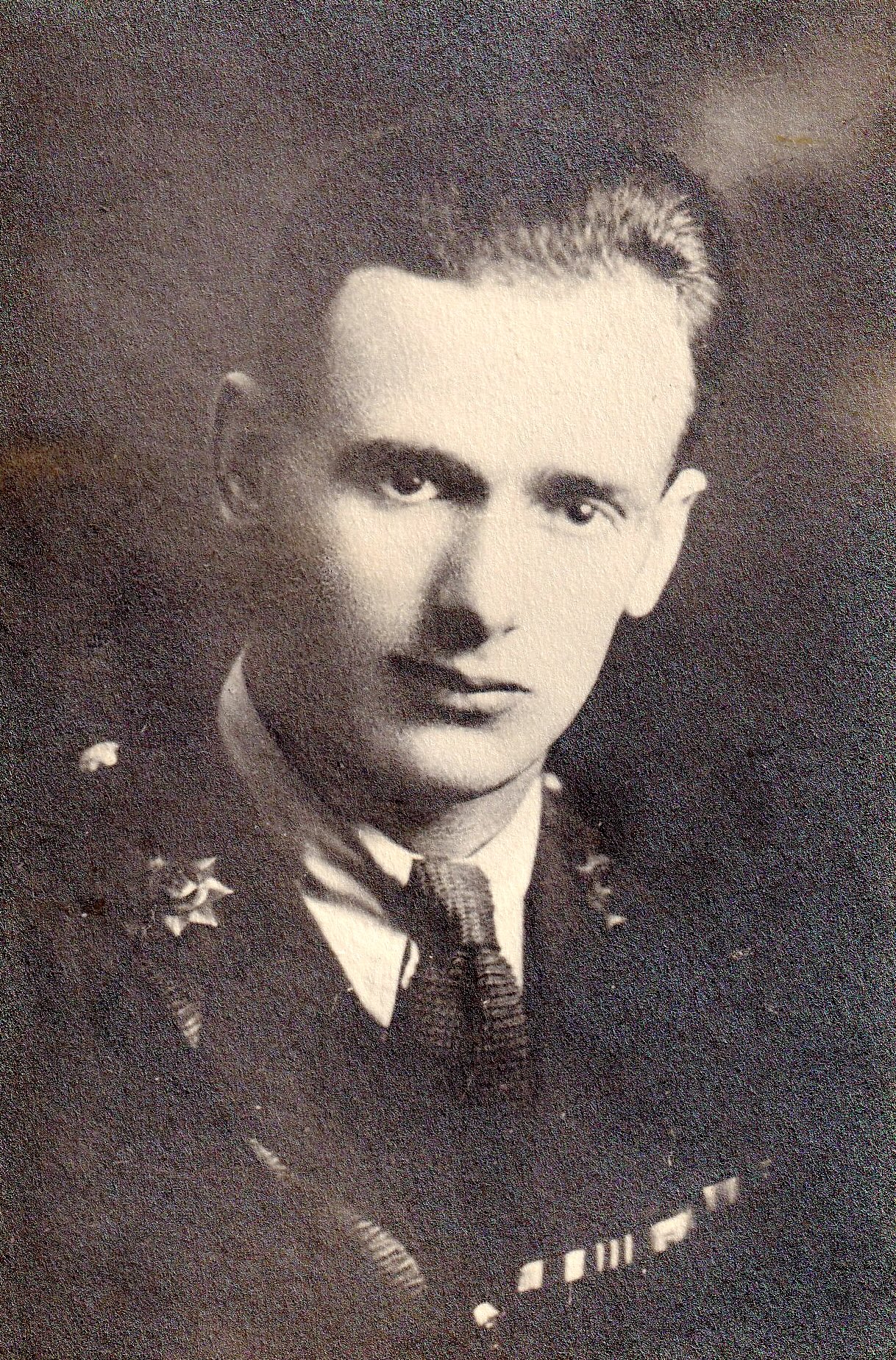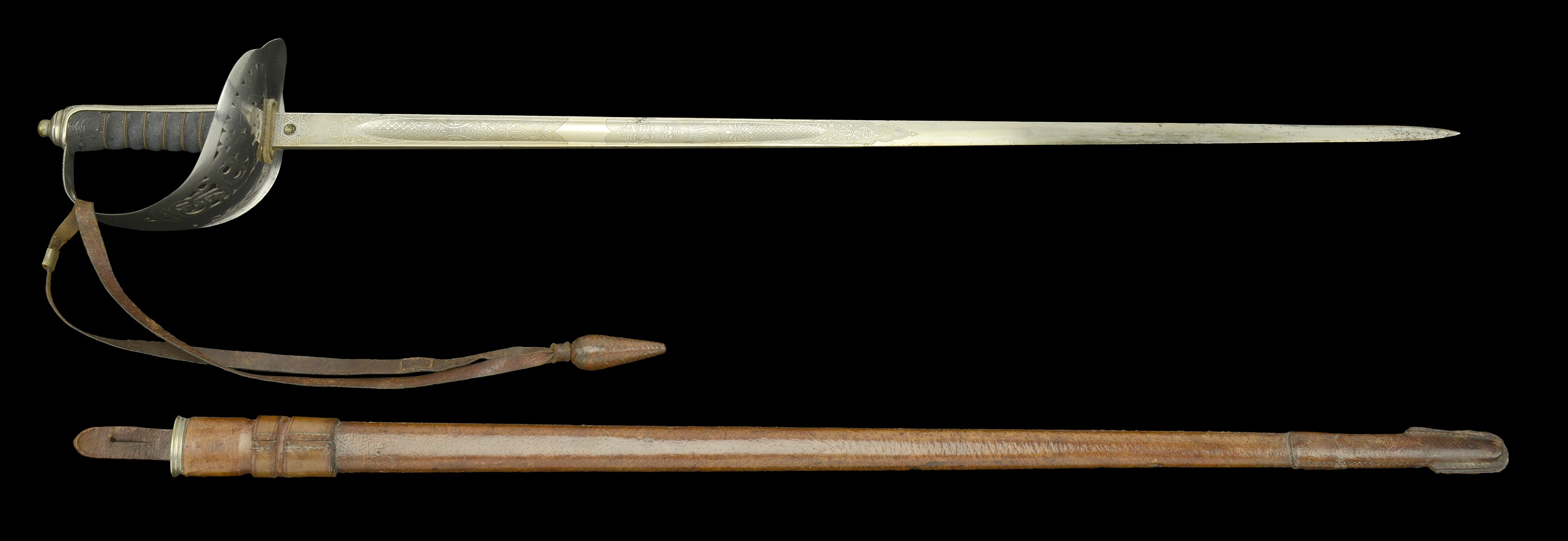The regimentally unique Great War M.C., M.M. group of six awarded to Lieutenant W. C. Maunder, Devonshire Regiment; captured and taken prisoner of war at Bois de Buttes on 27 May 1918, he was later severely wounded during an attack on Ignatovskaya, North Russia, on 27 June 1919 Military Cross, G.V.R., unnamed as issued; Military Medal, G.V.R. (9415 Sjt. W. C. Maunder. 1/Devon R.); 1914 Star, with copy clasp (9415 Pte. W. C. Maunder. 1/Devon R.); British War and Victory Medals (2. Lieut. W. C. Maunder.); Defence Medal, mounted for wear, light pitting, very fine and better (6) £1,800-£2,200 --- M.C. London Gazette 26 July 1918: ‘For conspicuous gallantry and devotion to duty. A hostile party had crossed a bridge, and were attacking in the flank. He at once led his men against the enemy, who were on top of an embankment, and although heavily fired on he succeeded in killing a considerable number and taking four prisoners, besides two British officers of another regiment, who had been captured. His courageous action restored complete command of the bridge.’ Annotated Gazette states: ‘St Christ Bridge, River Somme 24 March 1918.’ M.M. London Gazette 27 October 1916. William Charles Maunder was born in Dawlish, Devon in 1894. A Labourer by occupation he attested for the Special Reserve in 1911 serving 111 days before attesting for the Devonshire Regiment on 2 December 1911. His pre-war military conduct was chequered, described as ‘Fair. Bad tempered, Intelligent, honest & sober’. At the outbreak of the Great War he was serving with the 1st Battalion stationed at St Helier, Jersey. The battalion embarked for France and joined the British Expeditionary Force at Le Havre on 22 August 1914. Quickly promoted he served in the early actions of the Great War and was awarded the Military Medal whilst serving as a Sergeant with the 1st Battalion. Hospitalised in 1917 suffering from Trench Feet he was temporally attached at Hastings to the Royal Flying Corps in 1917 before returning to France with the 2nd Battalion on 2 November 1917. Appointed Acting Company Sergeant Major he was granted a Permanent Commission ‘For service in the Field’ on 4 February 1918, still with the 2nd Battalion, Devonshire Regiment, and he took up duties as Second Lieutenant with ‘C’ Company. He was awarded his Military Cross whilst serving with his company during the action at St Christ Bridge over the River Somme on 24 March 1918. Maunder was in action with H.Q. Company at Bois de Buttes near Pontavert on 27 May 1918, with orders to hold the line to the last. 23 officers and 528 men were reported as killed or missing; the 2nd Battalion was cited in the French Orders of the Day and was collectively awarded the Croix de Guerre, honours which the battalion was the first British unit to receive. Captured and subsequently held in Stralsund/Dänholm Prisoner of War Camp, Germany, he was repatriated on 14 December 1918. Granted two months’ leave he was posted Second Lieutenant with No. 2 Composite Battalion, No. 3 (Devon Regiment) Company (attached 1st Oxfordshire and Buckinghamshire Light Infantry) on 12 April 1919 for service with the North Russia Relief Force. Embarking from Southampton on H.M.T. Czar for Russia, No. 2 Composite Battalion arrived at Murmansk on 18 May 1919 and disembarked at Sobornia Quay, Archangel on 26 May 1919. Marching to Olga Barracks on right bank of River Dwina they embarked by local Russian river tugs south up the River Dwina to the junction of rivers Dwina and Vaga. Disembarking at Beresnik they marched via Ust Vaga to the front at Seltso. No 2 Composite Battalion took part in the attack on Ignatovskaya on left bank of River Vaga on 27 June 1919; during this action Second Lieutenant Maunder received ‘Gun Shot Wounds Severe Left Arm’. Medically evacuated via Archangel he disembarked at Leith on 4 August 1919. Promoted Lieutenant he was admitted to 3rd London General Hospital, Wandsworth on 5 August 1919. Transferred to Queen Alexandra Military Hospital, Millbank he was medical boarded as permanently unfit for any further Military Service due to ‘Gun Shot wound left arm’ disability 50% due to wounds, injuries equivalent to the loss of a limb and likely to be permanent in their effects 4 February 1921. He was placed on the Half-Pay list on account of ill-health on 8 March 1921. Following his discharge, and having married, Maunder set up business as a tobacconist in Teignmouth, South Devon. Following the outbreak of the Second World War he again volunteered his services and was appointed Lieutenant in the 9th (Newton Abbot) Battalion, Devon Home Guard on 1 December 1941. He died at Teignmouth Hospital on 7 June 1962, aged 67. Sold with the recipient’s Infantry Officers’ Sword, 33 inch blade by G. Boyton & Son, Clerkenwell etched with scrolls, GV cypher, regulation steel hilt with wire bound fishskin grip and leather scabbard, the ricasso numbered 2613 and faintly engraved ‘W.C. Maunder Devon’ a photographic images of the recipient; original documents; and extensive copied research. This is an age restricted lot: the successful buyer will be required to either collect in person, or arrange specialist shipping.












